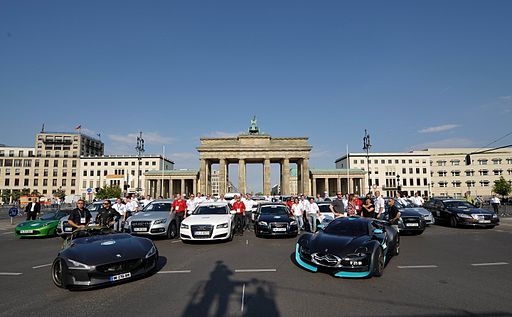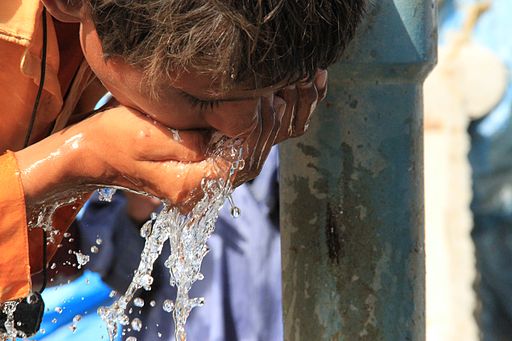CSR in PR
Published on March 3, 2017, at 3:43 p.m.
by Melody Schmidt.
Corporate social responsibility (or CSR) is defined by the Financial Times as “a business approach that contributes to sustainable development by delivering economic, social and environmental benefits for all stakeholders.” It includes “many and various topics such as human rights, corporate governance, health and safety, environmental effects, working conditions and contribution to economic development.”
In order for CSR to be effective, it needs be supported by the underlying core values of the company practicing it. Lynn Mann, former director of external communication for Michelin North America, has learned a lot about the importance of CSR and need for a strong underlying foundation of values in her 12 years with Michelin. Transparency is a critical component of CSR since companies need to be honest and open to build credibility with their publics and make an impact in their communities, both local and national.
“Transparency is most important when things go wrong,” Mann said. “Remember: ‘It’s the cover up that gets you.’ It was true in Watergate and it’s true now. The American public will forgive almost anything. Recalls are quickly forgotten. Cover ups, like the recent Volkswagen scandal, linger much longer and have great consequences.”

Transparency is a critical component of CSR since companies need to be honest and open to build credibility with their publics and make an impact in their communities, both local and national. Authenticity should also be an integral part of the corporate culture of any company that wants to develop CSR programs, since it provides credibility to CSR efforts and underlying corporate values.
“When done authentically, CSR is a core value of the company that flows from the very top and infuses the entire organization,” Mann said. “This level of goodness is somewhat rare, in my experience.”
Michelin North America is a prime example of a company that’s mastered CSR, benefitting the company, its key publics and the community. Winning numerous CSR awards, Michelin has been at the forefront of CSR with its award-winning sustainable mobility program, Challenge Bibendum.
“Challenge Bibendum is a solution-neutral event that brings together all actors in sustainable mobility (manufacturers, suppliers, energy companies, regulators, government and non-government organizations) to test, to discuss, to report and to spur further development,” Mann said.

Michelin is proof that an investment in CSR can yield incredible results for companies who want to show how much they value being stewards of their communities (and the world).
“It costs millions of dollars for each event,” Mann said. “I’ve never seen another company ‘put their money where their mouth was’ in such a scale. Many of the prototypes shown or debuted at a Challenge Bibendum are now in production. In fact, I drive one — the Toyota Prius!”
Mann created another one of Michelin’s successful CSR initiatives, Michelin Challenge Education (MCE). The MCE program connects Michelin facilities in North America with local elementary schools in their communities.
“The leadership of the plant creates a business plan with the school leadership to help bridge whatever achievement gap the school has,” Mann said. “Through a combination of financial donations and lots of volunteer on-site support, the school and the Michelin plant work together to improve the quality of education at those public schools.”
Another shining example of CSR done right is Procter & Gamble’s Children’s Safe Drinking Water Campaign. Since the campaign’s launch in 2004, P&G has strived to provide billions of liters of clean drinking water to deprived communities in developing countries by distributing its own water purification packets.
“We have a long history of giving back to the communities where we live and work,” said Julie Desylva, senior communications manager at Procter & Gamble.

According to the Children’s Safe Drinking Water blog, P&G works “to integrate clean water, sanitation and hygiene education in ongoing community programs, [as well as] continue support of emergency response efforts.” The packets have been beneficial in aiding communities impacted by hurricanes, like Haiti in the aftermath of Hurricane Matthew.
“It’s an inspiring program,” Desylva said. “In May, we provided our 10 billionth liter of clean drinking water since the program began in 2004.”
The campaign includes a website, a blog that covers P&G employees providing emergency relief efforts, press releases that document charitable milestones, and videos that encourage P&G’s publics to support the water purification cause by making a donation.
CSR can be a beneficial tactic for relationship-building for those who choose to make the investment. CSR builds goodwill with publics, improves employee morale and can be a strong asset for building a brand. When choosing which CSR initiative is right for your company, Lynn Mann recommends pursuing a cause that aligns with its corporate goals and values.
“The effort needs to flow as an outcome of who you are as a company, not a bolt-on that just tries to earn brownie points,” Mann said. “Whirlpool gives appliances to every Habitat for Humanity home. That flows from their expertise and is authentic to their brand. For CSR to be authentic, it must be close to the heart of the corporation.”




